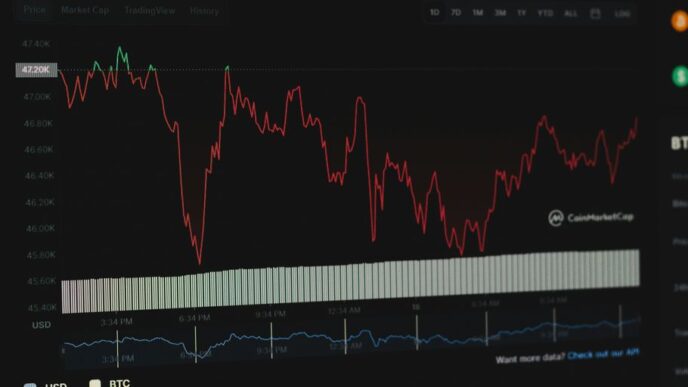Blockchain technology has been a hot topic lately, and for good reason. This innovative technology is here to stay, and it’s about time we started looking at its potential beyond the world of cryptocurrencies. From healthcare to finance, logistics to real estate, the versatility of blockchain technology knows no bounds. In this blog post, we’ll explore just how powerful this game-changing tech can be in revolutionizing various industries worldwide.
The Potential of Blockchain Technology in Various Industries:
Blockchain technology is quickly becoming a hot topic in various industries due to its potential applications. One of the most significant areas where blockchain can make an impact is finance. By using blockchain, financial institutions can reduce costs and improve efficiency by eliminating intermediaries from processes such as payment settlements, issuing loans, and managing identity verification.
Another promising industry for blockchain technology is supply chain management. By utilizing distributed ledgers, stakeholders in the supply chain process can trace products throughout their entire journey from creation to delivery with complete transparency and accuracy.
The healthcare industry also has the potential to benefit significantly from blockchain technology by improving patient data security and streamlining medical record-keeping processes. Blockchain could also enable more efficient clinical trials by providing verified records of patients’ health data.
Beyond these industries, there are numerous other sectors that could potentially benefit from adopting blockchain technology. For example, governments could use it for secure voting systems or tracking public expenditures; real estate companies could use it to streamline property transfer procedures; even the music industry might be able to track copyright ownership through a transparent ledger system.
While still relatively new and untested in many cases, there’s no question that blockchain has vast untapped potential across various industries. As time goes on and more companies begin experimenting with this powerful technology, we’re likely to see even more innovative applications emerge in different sectors around the world.
Exploring the Applications of Blockchain Technology Across Industries:
In the finance industry, blockchain can be used for secure and fast transactions without intermediaries such as banks. By implementing this, one can lower transaction costs and improve transparency.
In healthcare, blockchain can improve record-keeping by allowing patients to have ownership of their medical records and control over who accesses them. It can also streamline supply chain management in pharmaceuticals by tracking the authenticity of drugs from production to distribution.
The real estate industry could benefit from blockchain through smart contracts that automate property sales, transfers, and title deeds. It could also facilitate crowdfunding platforms where investors can buy shares in properties or developments.
Blockchain technology is already being used in logistics and shipping to track goods throughout the supply chain while maintaining data privacy and security. Additionally, it could be used in voting systems to prevent fraud, tampering with results or inaccurate counting.
There are endless possibilities for how blockchain technology can transform different industries. As more businesses explore its potential benefits, we will see even more creative ways this innovative solution is applied across all sectors of society.
The benefits of blockchain technology:
The potential impact of blockchain technology on multiple industries could transform the way we carry out transactions. it allows data to be stored in a decentralized manner, making it accessible to everyone who has permission to view it.
Another benefit of blockchain technology is security. The distributed ledger system ensures that every transaction recorded on the blockchain cannot be altered or deleted, which makes it nearly impossible for anyone to tamper with the data without leaving a trace.
In addition, blockchain technology can improve efficiency by reducing costs associated with intermediaries such as banks, lawyers, and other third-party service providers. By eliminating middlemen in transactions like international payments or real estate deals, businesses can save both time and money.
Furthermore, it can enable trust between parties that previously had no relationship before through smart contracts. This feature helps automate business processes and enforce agreements between parties without relying on traditional legal systems.
Another advantage of using this technology is increased accountability. The transparent nature of the system means that individuals involved in fraudulent activities will find it harder to hide their actions from public scrutiny.
These benefits highlight how versatile and useful blockchain technology can be across various sectors when properly utilized.
The challenges of blockchain technology:
Despite the many benefits of blockchain technology, there are still some challenges that need to be addressed. One major challenge is scalability. As more transactions are added to a blockchain network, it can become slower and less efficient. This issue is particularly relevant for large-scale applications such as those in the finance industry.
Another challenge is interoperability. While blockchain technology has great potential for improving efficiency and transparency within individual industries or organizations, different blockchains may not always be compatible with each other. This can create obstacles for businesses looking to integrate blockchain solutions across multiple platforms or networks.
Security is another significant challenge facing the adoption of blockchain technology. While blockchains are often touted as being highly secure due to their decentralized nature, they are still vulnerable to hacking and other cyber attacks if proper security measures aren’t put in place.
There’s also a lack of regulatory standards around how blockchains should be used in various industries. Without clear guidance on issues such as data privacy and ownership rights over digital assets stored on the blockchain, businesses may hesitate to fully adopt this new technology.
While these challenges pose real obstacles for widespread adoption of blockchain technology, they also present opportunities for further innovation and growth within the field as researchers work towards finding solutions that will make this revolutionary technology even more accessible and useful across various industries.
Conclusion:
This excellent technology has the potential to revolutionize various industries and transform the way we conduct business. From supply chain management to healthcare record-keeping, this innovative technology offers a transparent, secure, and efficient system for data storage and transfer.
Although there are still challenges that need to be addressed when it comes to scalability and regulation, the untapped potential of blockchain technology is undeniable. As more companies begin to explore its possibilities and invest in its development, we can expect to see even greater advancements in the years ahead.
As consumers become increasingly aware of the benefits of blockchain technology and demand greater transparency from businesses, those who take advantage of this emerging trend will undoubtedly have a competitive edge in their respective industries.
So whether you’re an entrepreneur looking for ways to streamline your operations or simply interested in staying ahead of the curve when it comes to technological innovation, now is the time to start exploring what blockchain technoloogy can do for you.













